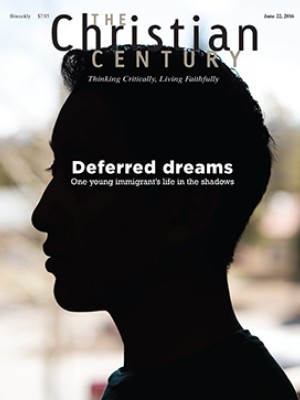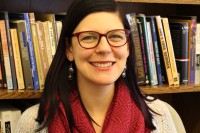In Tunisia, a move toward 'Muslim democracy'
Tunisia’s Ennahda movement, the most successful Islamist party to emerge from the Arab Spring revolts early in this decade, has left political Islam and declared that its members will operate in the country as “Muslim democrats.”
A recent party congress in Hammamet voted almost unanimously to drop Ennahda’s traditional religious work and participate in Tunisian politics as a regular political party.
The reform represented a major victory for Ennahda’s leader Rached Ghannouchi, 74, an activist who developed into an influential Muslim thinker during his 22 years of exile while Tunisia was governed by dictators.
Given a hero’s welcome on his return in 2011, he proved himself an astute politician as he guided his party during a stormy period in power and then bowed to public pressure and agreed to a 2014 election won by Ennahda’s secular conservative rivals.
“We have to differentiate between political and religious activity . . . we want religion to unite and not divide Tunisians,” Ghannouchi told the Paris daily Le Monde before the congress opened on May 20. “We want a party that talks about everyday problems, and not one that talks about the last judgment and paradise. We want religious activity to be completely independent of political activity.”
Read our latest issue or browse back issues.
One reason for the change was Tunisia’s relative political stability and the prospect for elections next year, he explained.
Another was that the so-called Islamic State movement had so discredited political Islam that Ennahda had to “show the difference between the Muslim democracy we support and the extremist jihadist Islam from which we want to distance ourselves.”
A quick look at the other countries most active in the Arab Spring protests shows how different Tunisia’s path has been. Egypt also elected an Islamist government, but its Muslim Brotherhood leaders were overthrown by the army in 2013 after trying to impose their religious views on the society.
Libya fell into chaos after ousting dictator Muammar Qaddafi and split into two, with rival governments in the east and west and an Islamic State stronghold along the coast between them. Syria descended into a bloody civil war that has become an international crisis.
Ennahda, which means “renaissance” in Arabic, began as an underground Islamist movement inspired by Iran’s Islamic Revolution and Egypt’s Muslim Brotherhood. Many leaders spent years in jail or exile.
Ghannouchi went abroad, but unlike many other Arab intellectuals who chose refuge in another Muslim country or France, he moved to London. He later said his 22 years in Britain showed him that a secular democracy could grant Muslims more freedom than the religious states most Islamists dreamed of.
His reformist writings won a following in Turkey in the 1990s, inspiring the Justice and Development Party, known as AKP, which has governed the country since 2002. Following the Muslim democratic model, it turned Turkey into a modern political and economic success story and looked like an inspiration for other Muslim countries.
The AKP’s star has faded badly in recent years, however, as President Recep Tayyip Erdogan has become increasingly autocratic, amassing power and crushing his opposition.
[Ebrahim Moosa, professor of Islamic studies at the University of Notre Dame, spent time with Ghannouchi while he was in exile. He was not surprised that Ghannouchi, when he returned to Tunisia, learned from what happened in Turkey and Egypt.
“The Islamist groups in Tunisia have shown that they can think differently,” Moosa said. “There has been a theological tradition in North Africa, maslaha, to give priority of what is in the best interest of the community and the public.”
This allows Ennahda some flexibility in its leadership, Moosa said.
“In Tunisia you have Shari’a meeting John Dewey,” he said, referring to the U.S. social reformer, who was a proponent of pragmatism. “It’s a different kind of leadership.”]
Ennahda candidates were elected in October 2011 to lead a transition government meant to draft a new constitution and hold parliamentary elections. While it preached reform, the party turned a blind eye to radicals trying to impose Saudi-inspired orthodox Islam on the country, sometimes by force.
But after two assassinations of leftist politicians in 2013 and the army coup against the Muslim Brotherhood government in Egypt, Ghannouchi signaled he was ready to reach a compromise with the secular opposition.
The Tunisian National Dialogue Quartet, a team of four civil society activists, guided the delicate transition to an election the following year and was awarded the 2015 Nobel Peace Prize for its work.
Although Ennahda has left religious activity, it has not renounced Islam itself. Instead, the party’s new identity stresses faith as the source of inspiration for its center-right policies, much like the Christian Democratic parties that emerged in Europe after World War II.
Ghannouchi’s role in Ennahda should guarantee this reform remains party policy for the immediate future. What happens after he steps down is less clear, since the party’s members who spent many of the dictatorship years in jail are often more militant than reformist former exiles like Ghannouchi.
“We are leaving political Islam to enter into Muslim democracy,” Ghannouchi told Le Monde, avoiding the word secular. “Ennahda is a democratic and civil political party based on Muslim and modern civilizational values.” —Religion News Service; the Christian Century
This article was edited on June 6, 2016.







